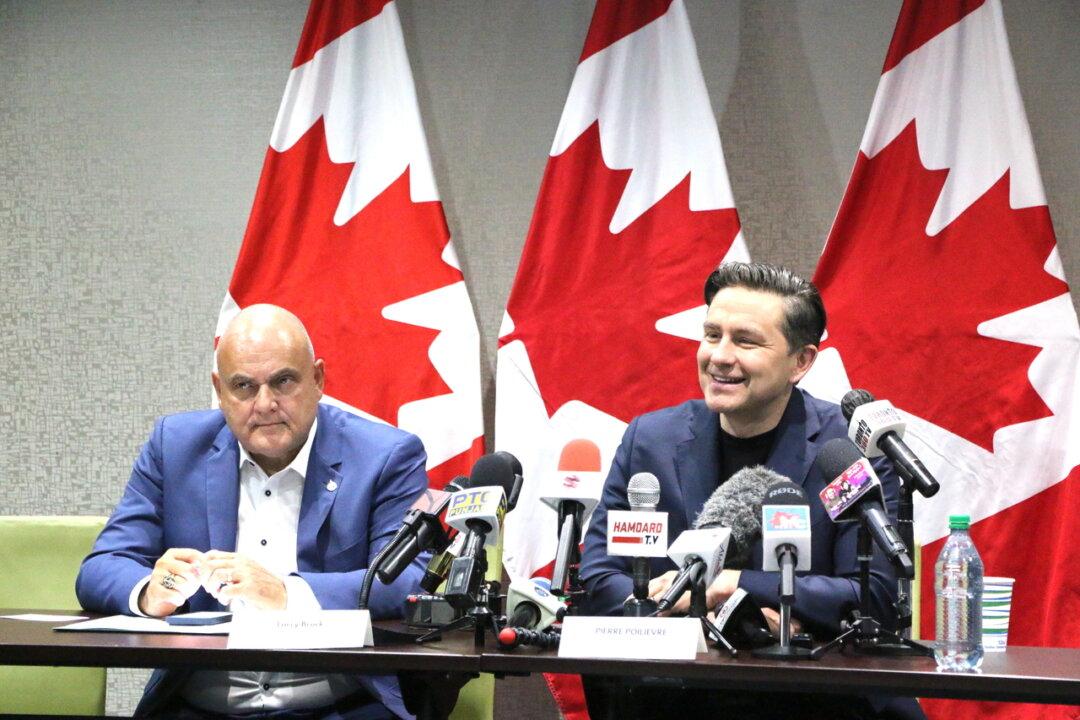MISSISSAUGA, ONT.—Conservative Leader Pierre Poilievre called the Liberal government’s proposed legislation to counter foreign interference “a step in the right direction” but said that more must be done on this issue, including addressing the issue of Chinese police stations in Canada.
In early May, the government introduced Bill C-70, which introduces a foreign agent registry and other measures meant to curb foreign interference in Canada. The Conservatives have supported the bill, and are asking for its quick passage.





